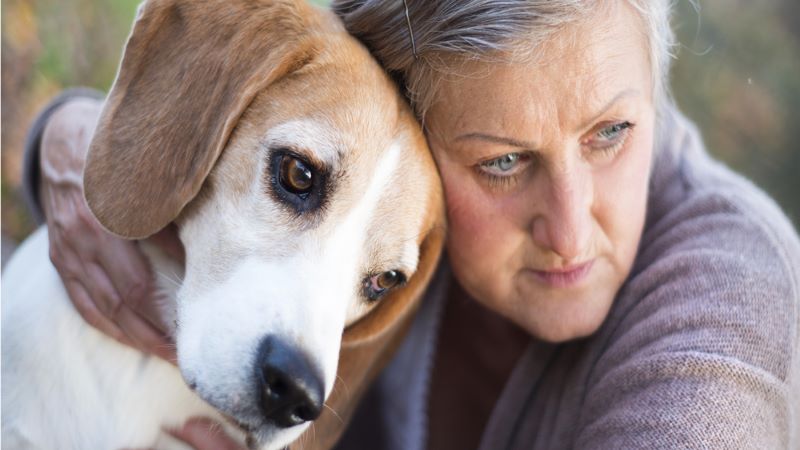When my parent’s golden retriever was eight, the doctors found a tumor in her stomach. They prescribed Carly medication to be taken daily, and she lived to the ripe old age of 15.
It is frightening to know that cancer is the leading cause of death in dogs over the age of 10, but comforting to hear that half of all cancers are curable - if caught early. Carly was not acting like herself and my parents knew something was up, so they took her to the animal hospital to have her veterinarian check her out. Regular exams are key when it comes to preventing and curing any disease, and just as in humans, early detection saves lives.
Cancer in Dogs
| Common Canine Cancers | Common Signs |
| lymphoma | lumps or bumps that seem to appear out of nowhere |
| mast cell tumors | a wound that doesn’t heal |
| mammary cancer | swelling |
| soft tissue sarcomas | enlarged lymph nodes |
| bone cancer | lameness or swelling |
| abnormal bleeding |
Vets are seeing more cancer than they did 20 or so years ago, but Dr. Dave Ruslander, veterinary oncologist and past president of the Veterinary Cancer Society, speculates this is because dogs are living longer. When Dr. Ruslander answered WebMD’s 10 commonly asked questions about cancer in dogs, he said, “Years past, many dogs died from common illnesses or were hit by a car. But now we have vaccines and we keep our dogs indoors, so they’re just around longer.”
Cancer in Cats
Although cancer does not occur in cats as often as it does in dogs, it can be more aggressive.
| Common Feline Cancers | Common Signs |
| lymphoma | lumps and bumps |
| oral squamous carcinoma | lack of appetite |
| fibrosarcoma (soft tissue sarcoma) | lethargy |
| lung, brain, nasal and liver cancers (less common) | vomiting |
| diarrhea | |
| difficulty breathing |
The most common type of cancer in cats is lymphoma associated with the feline leukemia virus (FeLV). There is now a vaccine for feline leukemia, but cats exposed to the virus are at significantly higher risk for developing lymphoma.
Cats can be tricky to diagnose because they tend to hide disease well, so yearly exams are very important. Some vets recommend cats have exams twice yearly, especially middle-aged to older cats. Blood screenings can allow doctors to detect changes in health not obvious to a cat’s owner. Just as is the case with dogs, spaying your cat can prevent mammary (breast) cancer. Vaccinations are important, as well as feeding your cat a high quality diet rich in EPA and DHA. As with any pets, avoiding pesticides and other known cancer-causing agents can protect your cat against cancer, too.
Cancer Treatments for Pets
Hearing your pet has cancer is not a death sentence anymore. Many of the same medical practices available to humans for the treatment and cure of cancer are also available to dogs and cats, including surgery, chemotherapy, radiation and other medication.
Affording Cancer Treatments
PetPartners pet insurance offers a wellness plan option with reimbursement towards your pet's annual wellness exam where your veterinarian can keep an eye out for the first signs of cancer. Cancer treatment coverage is also included in the accident and illness base plan! Get a quote today to see how you can proactively prepare for unexpected veterinary bills such as cancer treatments.
Stay Informed
Cancer can be a scary diagnosis for any pet owner. Early diagnosis is important as well as staying abreast of the latest research and treatment options. Understanding your pet’s inherited risks can also play an important part in helping you decide the best vaccination plan and diet.
Honor Your Pets
If you have lost a pet to cancer, you can honor him or her on the Canine Health Foundation’s Celebration Wall. You can also donate toward cancer research through many pet organizations.

